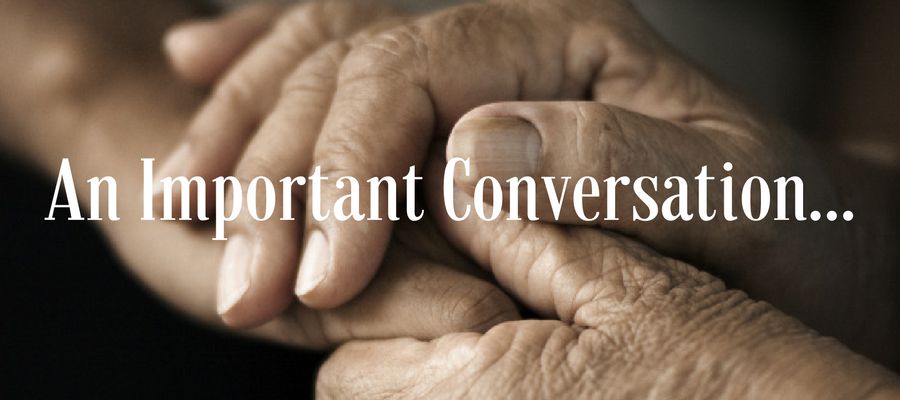
A sad, but unavoidable fact of life is that none of us will live forever. Nevertheless, it can be difficult to discuss your final wishes with your family, and even more difficult to start the conversation with an ill or elderly loved one.
Planning a funeral or memorial service and burial in advance may seem morbid, but it can give people a sense of control over their own destiny. It also relieves families from the pressure of making tough decisions when the end comes.
In this highly-practical final wishes planner, we outline what you need to do to ensure that your final wishes are carried out when the time comes.
In case you are using this final wishes planner for someone else, we’ll also give you tips on how to start a conversation with your loved one about what he or she wants.
Step 1: Discuss My Final Wishes With My Family
Nobody knows your family like you do. Assess whether the direct approach or an indirect approach is the best way to start the conversation about your final wishes.
The direct approach is literally starting a discussion with a statement like: “I’ve been thinking about planning my memorial service, and I would like to discuss it with you. Can we talk about it next Tuesday evening?”
The direct approach works best with families that prefer to speak frankly and are highly practical. By scheduling an appointment to have the conversation, you are giving your family members time to prepare themselves mentally.
You may even request a formal gathering of all adult family members.
In other families an indirect approach (where the topic of final wishes is weaved into casual conversation) works best. You can create opportunities to have this conversation by first mentioning someone’s death and subsequent funeral or memorial service.
It can be someone that you know that has recently died, or somebody in the news, or somebody who died on a TV show.
After the general topic of death has been raised, ask open-ended questions like “Have you ever though about where you would like to be buried?” or “What type of funeral would you want?”
After you have had the opportunity to hear what their final wishes are, you are able to share your own thoughts.
Whether you take the direct approach or the indirect approach, you may have family members that get upset and resist having the conversation. (After all, you are wonderful, so the thought of having to live without you is unimaginable.)
Reassure your loved ones that you are not trying to upset them and that you only want to have the conversation because you love them very much.
You do not want them to be burdened with having to make difficult decisions about your funeral or memorial service and about your final resting place. Planning ahead is an expression of your love.
It goes without saying that having a conversation about your post-death wishes will be much easier to have if death is not an imminent possibility. Therefore, it is best to have this important conversation with your family when you are still in good health.
However, if you are already in poor health, it is not too late to have the conversation. Choose a quiet time when your family members aren’t distracted. Be prepared for tears.
Again, reassure them that you want to do as much as possible to make life as easy as possible for them during the difficult time you foresee coming.
Step 2: Obtain Agreement on My Final Wishes
Did you know that the person who will arrange your funeral has no legal obligation to follow any instructions that you gave? It is therefore important that the people who are most likely to arrange your funeral agree to carry out your plan.
In 2003, the famous baseball player Ted Williams died without having a funeral plan. His adult daughter and son disagreed about what their father would have wanted, resulting in a very public fight.
In 2015, when 19 year-old Sawyer Sweeten died, his divorced parents fought over where his body should be buried. They both wanted Sweeten to be buried in the State they lived in.
If you have a Legal Will (which is a good idea for many reasons, including minimizing estate taxes), ensure that your executor understands and agrees with your final wishes.
If you have any doubt that your wishes will be carried out, consider making your funeral and burial plan part of your Legal Will.
Step 3: Create a File Labelled “My Final Wishes” and Keep it in an Easy-To-Find Place
It would be a real gift to your family to create a file labelled “My Final Wishes and Last Will and Testament.”
Show your family the file and exactly where they can find it should you pass away. Do not change the location of where this file is kept (even if you are in the throes of a spring cleaning and home reorganization frenzy)!
This file serves both you and your family. It allows you to tell your family your final wishes in as much detail as you desire.
The first document in your file should be your Last Will and Testament.
The funeral home may require your estate’s executor to provide proof that he or she has the authority to make decisions about your funeral or memorial service. Your Legal Will, which specifically names the executor of your choice, provides this proof.
Your file should have a completed final wishes planning checklist. It should, at a minimum, cover your wishes for:
-
- If you choose burial, where you wish to be buried and any details of any cemetery plot, lot, or crypt you may have purchased. (Your file should also contain the original paperwork.) You should also indicate whether you want to be embalmed or not.
-
- If you choose cremation, what you would like done with your ashes (e.g. scattered at a certain location(s); kept in the family home; interned in a mausoleum).
- The type of ceremony you wish to have (e.g. traditional church service; informal celebration of life service; memorial service at your golf club).
- Payment for your body disposition and funeral or memorial service. You may have prepaid for your funeral, or you may have purchased an insurance policy that should cover these costs. Make a note of any details in your checklist, as well as keep the original paperwork of any prepaid funeral plan or insurance policy.
If you wish, your final wishes planning checklist could also include details about your preferences with regards to the:
- Speakers giving the eulogy
- Music played and sung at your service
- Types of flowers
- Your favourite charities (people may want to make a donation in your name)
In your file, include any brochures or literature that may be of help to your loved ones when it comes time to plan the funeral or memorial service.
If the thought of writing your own life history, along with lessons you wish to pass onto the next generation, appeals to you, consider writing your own obituary.
There has been a growing trend of people writing their own obituaries, many of which are both funny and moving.
If you chose to write your own obituary, include a copy of it in your file, along with a list of newspapers or online websites you would like it published it.
If you’ve lived in many different cities in your lifetime, you may want an obituary published multiple geographical locations. Also be sure to update it should any significant life events occur (e.g. the birth or death of a family member).
Step 4: Encourage My Loved Ones to Discuss Their Final Wishes With Me
Not only is it important to share your final wishes with your loved ones, it is also important to encourage loved ones to share their wishes with you. Again, it is easier to broach this topic when everybody is in good health.
It can be extremely stressful when you are mourning the loss of a loved one to try and figure out what they would have wanted for their final arrangements.
If, on the other hand, you know what their wishes are, it relieves you of the burden of making these important decisions. You can take comfort in knowing that you have fulfilled their last wishes.
When you are encouraging your loved ones to discuss their wishes with you, all of the advice provided above also applies here. Consider whether a direct or indirect approach is best. Create opportunities for discussion. Be gentle and reassuring should your loved one find the discussion upsetting.
How to Discuss Final Wishes With a Terminally-Ill Loved One
Despite your best efforts, your loved one may not be prepared to discuss anything that reminds them of their own mortality, especially if they are in the end stages of life. In this case, do not force the issue.
In these instances, talking about their final wishes can be exceptionally difficult. Speaking about their death may seem to them like a form of abandonment, that you have lost hope in a miracle. Your own emotions of sadness, anger and anxiety might make the words too difficult to say.
It is possible that your loved one will have a change of heart as death approaches and wish to talk about their post-death wishes. You should always be alert for subtle cues that he or she now wishes to discuss this painful topic.
But the possibility exists that he or she will never be ready for this discussion.
In this case, all you can do once he or she has passed away is make the best arrangements that you can and let go of any anxiety that you could be making the wrong decisions.
Also talking to family members and friends may help you piece together a plan that makes sense, given the personality, beliefs and values of the person that passed away.
Share Your Thoughts…
We hope you found “My Final Wishes Planner” helpful. If you did, we would appreciate a “Like” on Facebook.
Have you ever had a conversation about final wishes, either in relation to yourself or somebody else? Do you have any advice from your own experience that you can offer other people on how best to broach or handle the topic? Please comment in the box below.
We’d love to hear from you. At Love Lives On, we’re always listening…



